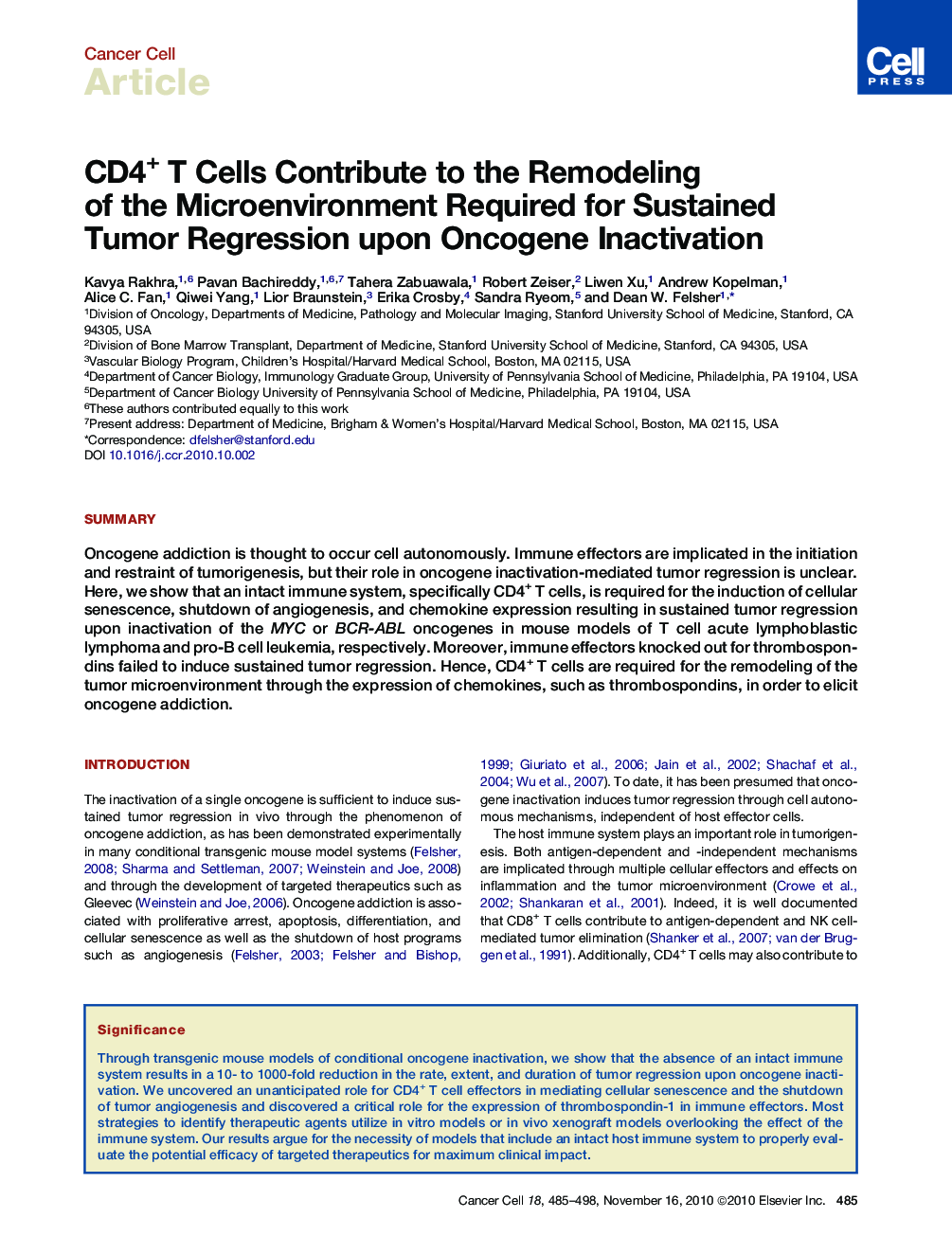| کد مقاله | کد نشریه | سال انتشار | مقاله انگلیسی | نسخه تمام متن |
|---|---|---|---|---|
| 2107667 | 1083692 | 2010 | 14 صفحه PDF | دانلود رایگان |

SummaryOncogene addiction is thought to occur cell autonomously. Immune effectors are implicated in the initiation and restraint of tumorigenesis, but their role in oncogene inactivation-mediated tumor regression is unclear. Here, we show that an intact immune system, specifically CD4+ T cells, is required for the induction of cellular senescence, shutdown of angiogenesis, and chemokine expression resulting in sustained tumor regression upon inactivation of the MYC or BCR-ABL oncogenes in mouse models of T cell acute lymphoblastic lymphoma and pro-B cell leukemia, respectively. Moreover, immune effectors knocked out for thrombospondins failed to induce sustained tumor regression. Hence, CD4+ T cells are required for the remodeling of the tumor microenvironment through the expression of chemokines, such as thrombospondins, in order to elicit oncogene addiction.
Graphical AbstractFigure optionsDownload high-quality image (289 K)Download as PowerPoint slideHighlights
► Oncogene addiction involves both cell autonomous and nonautonomous mechanisms
► An immune system is required for sustained tumor regression upon inactivation of oncogenes (MYC or BCR-ABL)
► CD4+ T cells regulate cellular senescence and angiogenesis in the tumor microenvironment
► TSP-1 secretion from immune cells is required for sustained tumor regression upon inactivation of an oncogene
Journal: - Volume 18, Issue 5, 16 November 2010, Pages 485–498